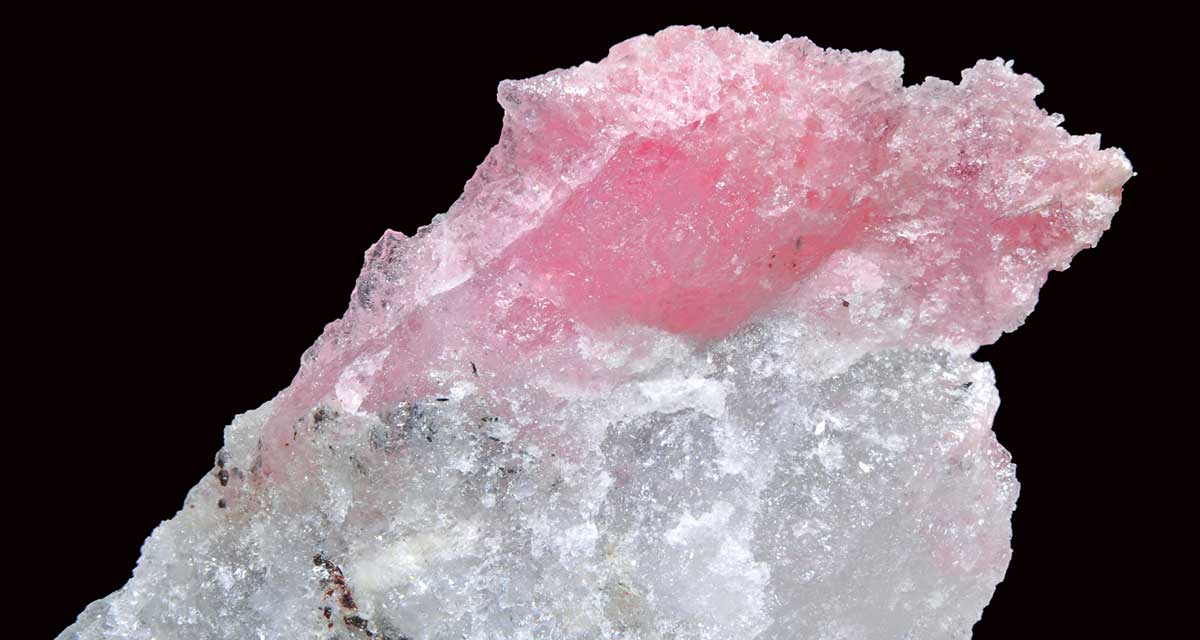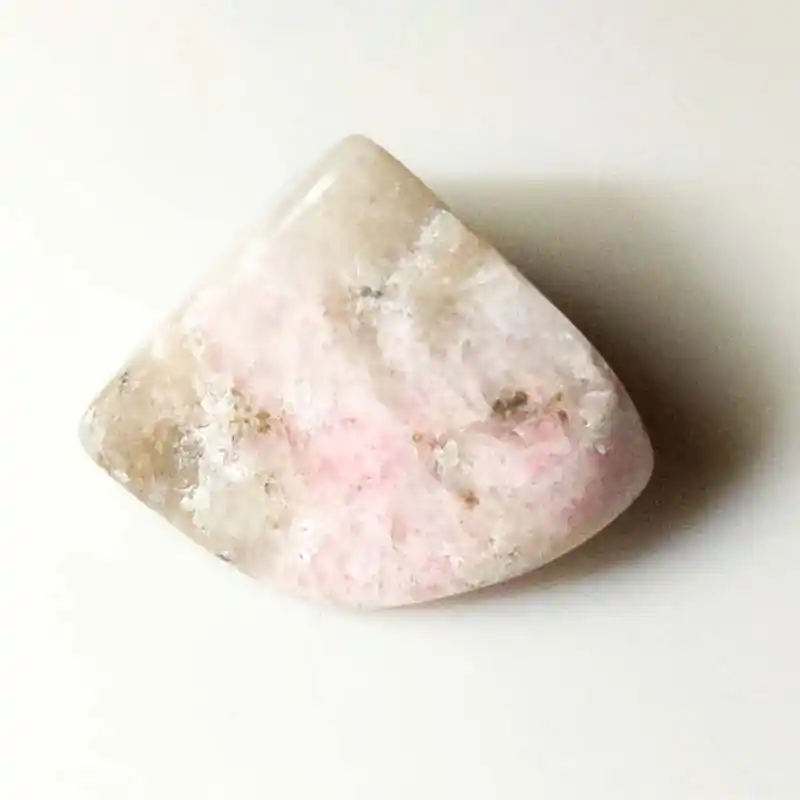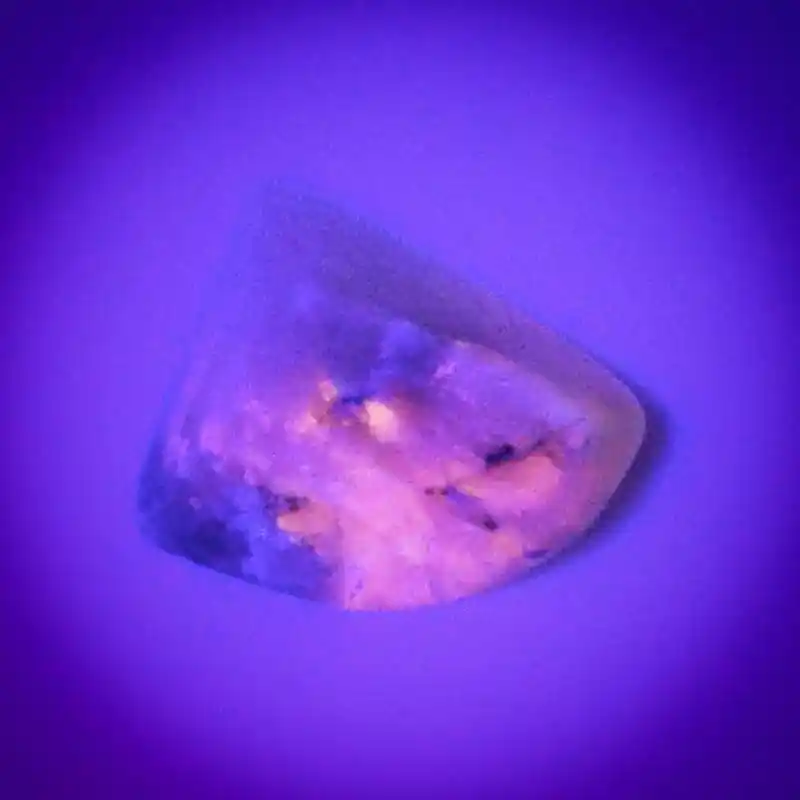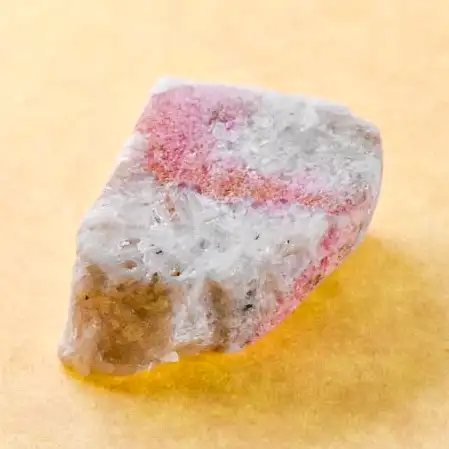Exploring Tugtupite:
Greenland's Rare Cherry Blossom-Colored Natural Stone

Tugtupite is a rare mineral known for its vibrant colors and unique properties. This article delves into the meanings and effects of Tugtupite, as well as its characteristics, origins, and history. By expanding your knowledge of Tugtupite, we aim to enhance your understanding and appreciation of this alluring crystal.
What is Tugtupite?
Mineral Data
- English Name
- Tugtupite
- Category
- Tectosilicate Mineral
- Chemical Formula
- Na₄AlBeSi₄O₁₂Cl
- Crystal System
- Tetragonal
- Color
- Pink, Red, White
- Main Sources
- Greenland
- Cleavage
- None
- Fracture
- Conchoidal
- Mohs Hardness
- 4-6
- Luster
- Glassy
- Streak
- White
- Transparency
- Transparent to Translucent
- Specific Gravity
- 2.35
About the Color and Appearance
Tugtupite exhibits fluorescent properties, intensifying its pink hue under UV or sunlight. It typically presents a mix of pink amidst white, often with black inclusions. Some samples also show a pale blue hue, although these are not commonly circulated.
Fluorescence of Tugtupite
Tugtupite is known for its fluorescence. Under short-wave UV light, it glows a vivid red, turning salmon pink under long-wave UV. The red color intensifies after exposure to UV or prolonged sunlight, a phenomenon known as tenebrescence. This fluorescence is attributed to the presence of manganese and other trace elements, which react vividly under UV light.
About the Origin
Tugtupite is primarily found in Greenland's Ilimaussaq region and is one of the rarest gemstones due to its limited occurrence. Its availability is constrained by seasonal mining conditions and the remote, machinery-inaccessible locations of its deposits. To date, it has also been found in Canada's Mount St. Hilaire, Russia's Kola Peninsula, and Nepal, with the highest quality specimens originating from Greenland.
According to the U.S. Geological Survey, Tugtupite has been found extensively from the Bardia River to the Dan River in Nepal, but as of 2023, its commercial circulation remains unconfirmed.
Physical Properties
Tugtupite, a tectosilicate mineral containing beryllium and aluminum, has a Mohs hardness of 4 to 6. Due to its relative fragility, careful handling is required.
Historical Background of Tugtupite
Tugtupite was first discovered near the town of Narsaq in 1957. This gemstone is particularly valued in Greenland for its deep coloration, making it a sought-after gem.
Tugtupite Legends
In Greenlandic Inuit culture, Tugtupite has long been revered for its powers. Legend says that lovers can make the stone glow a fiery red with their passionate romance. Even today, it's believed that holding Tugtupite can turn it pink.
Images of Natural Tugtupite



Meanings and Properties of Tugtupite
Activation of Chakras and Heightened Consciousness
Tugtupite is believed to activate the heart, throat, third eye, and crown chakras, enhancing consciousness. This unique mineral acts as a mirror, reflecting and encouraging self-assessment, and facilitates emotional and spiritual introspection.
Attracting Love and Wisdom Energy
Tugtupite creates a connection with the metaphysical world, attracting energies of love and wisdom, thus fostering personal growth.
Conclusion
Tugtupite captivates many with its beauty and unique characteristics. It is said to promote spiritual growth through the activation of chakras, elevation of consciousness, and attraction of love and wisdom energies. With proper care, it can be a cherished addition to any collection.
Meanings and Benefits of Tugtupite
- Chakra Activation
- Heightened Consciousness
- Attracting Love Energy
- Attracting Wisdom Energy
- Spiritual Growth
Recommended For
- Those Interested in Spiritual Growth
- Seekers of Chakra Activation
- Individuals Drawn to Love and Wisdom Energies
- People Seeking Self-Assessment and Inner Reflection
- Those Curious About Metaphysical Connections
Symbolic Meanings of Tugtupite
- Inner Beauty
- Passion
- Transformation
- Courage
Important Notes
- *This article is based on general information about Tugtupite. The effects of crystals can vary from person to person.
